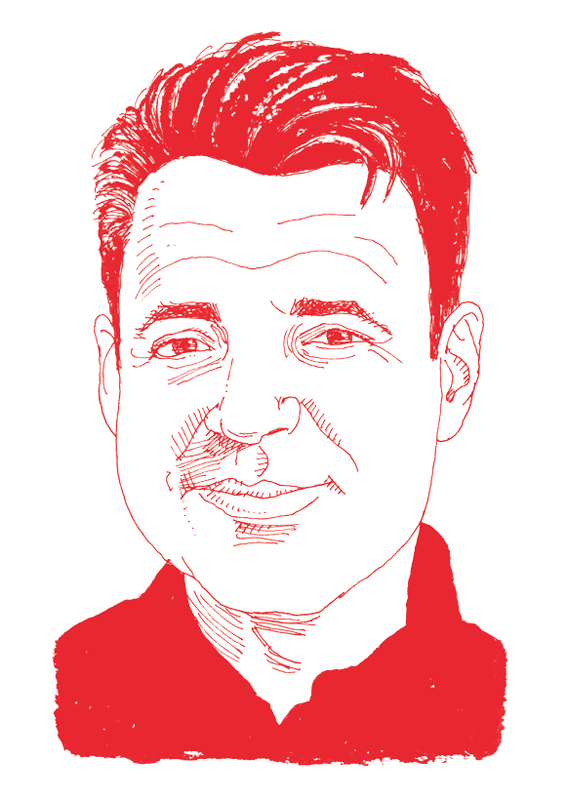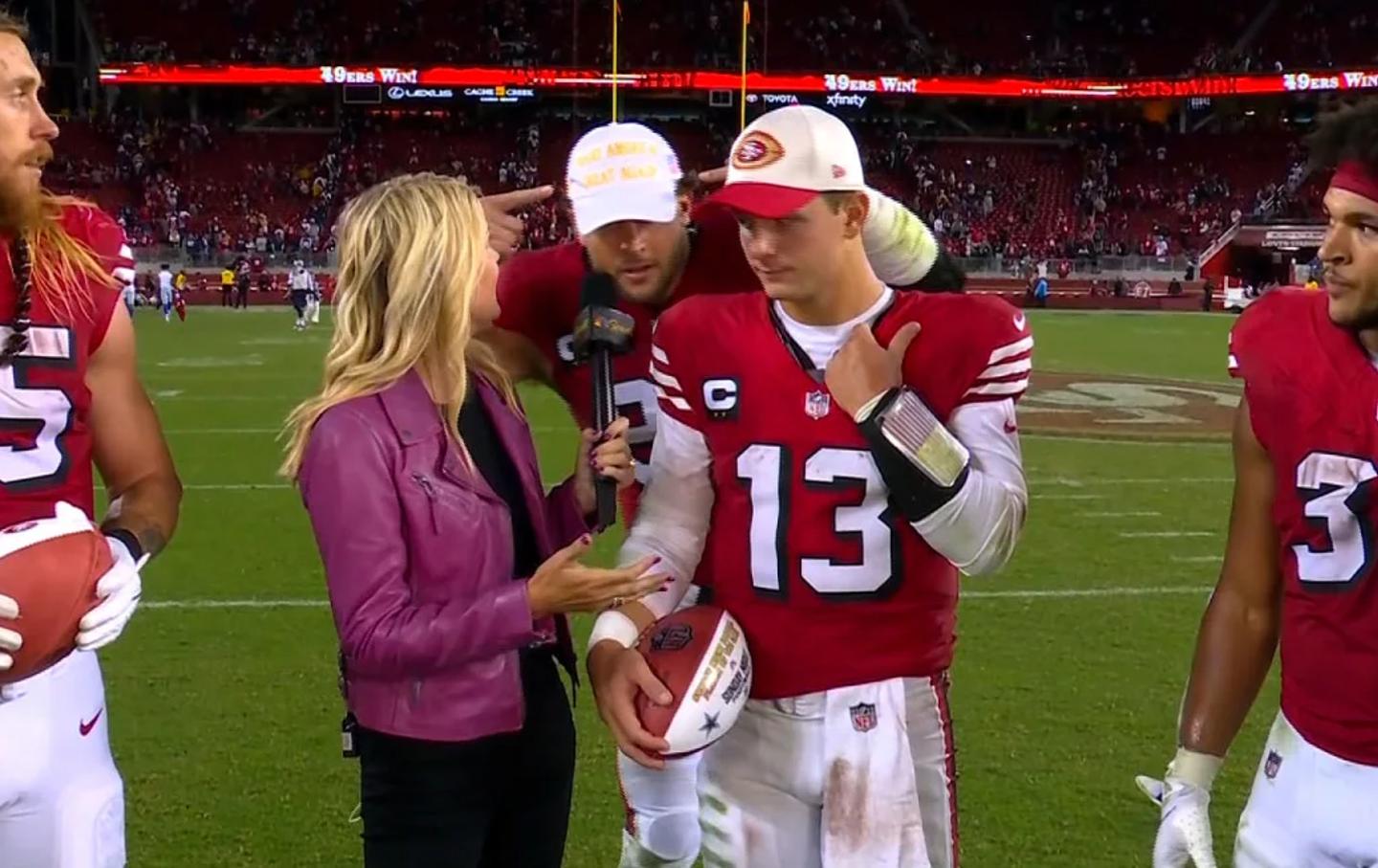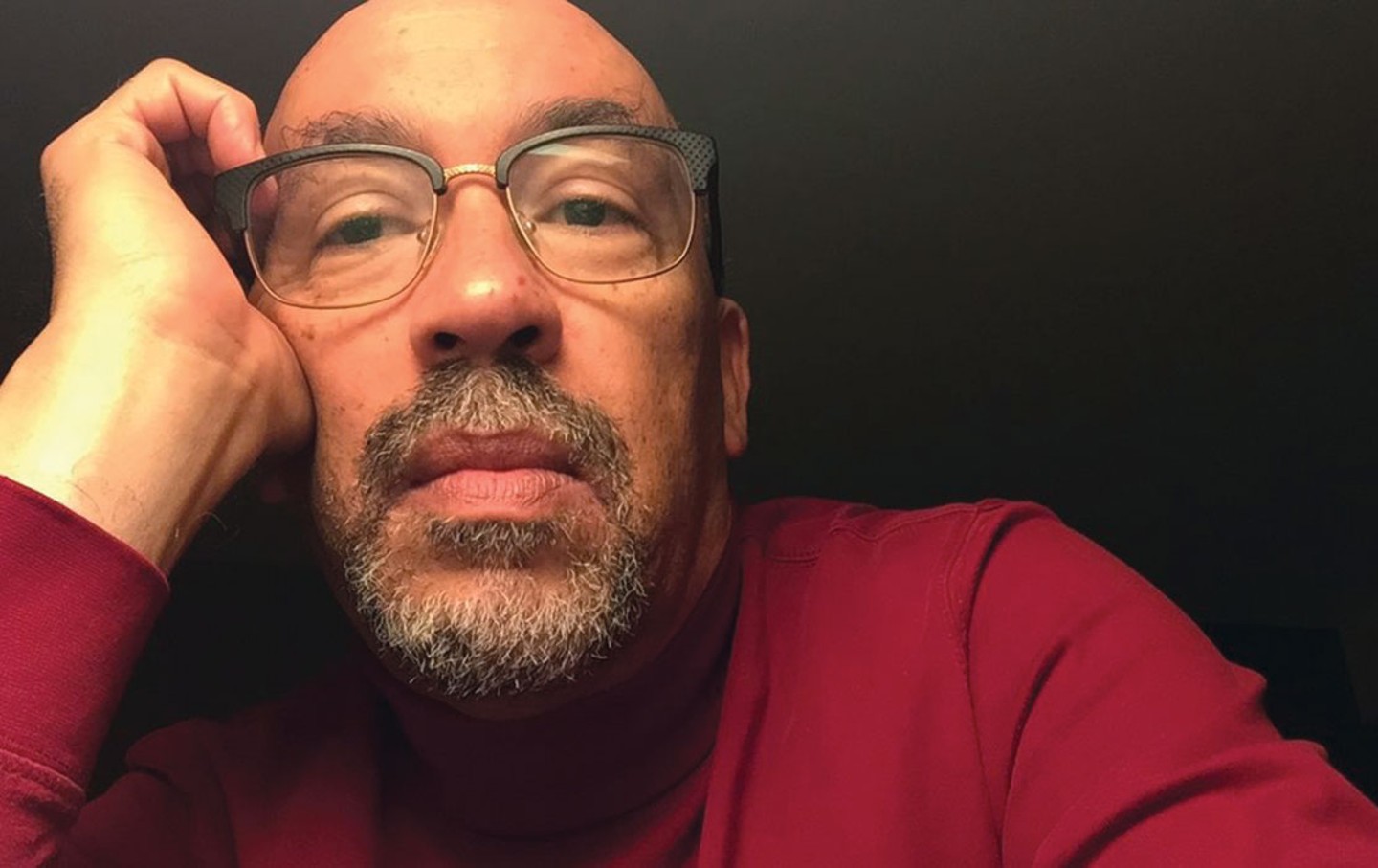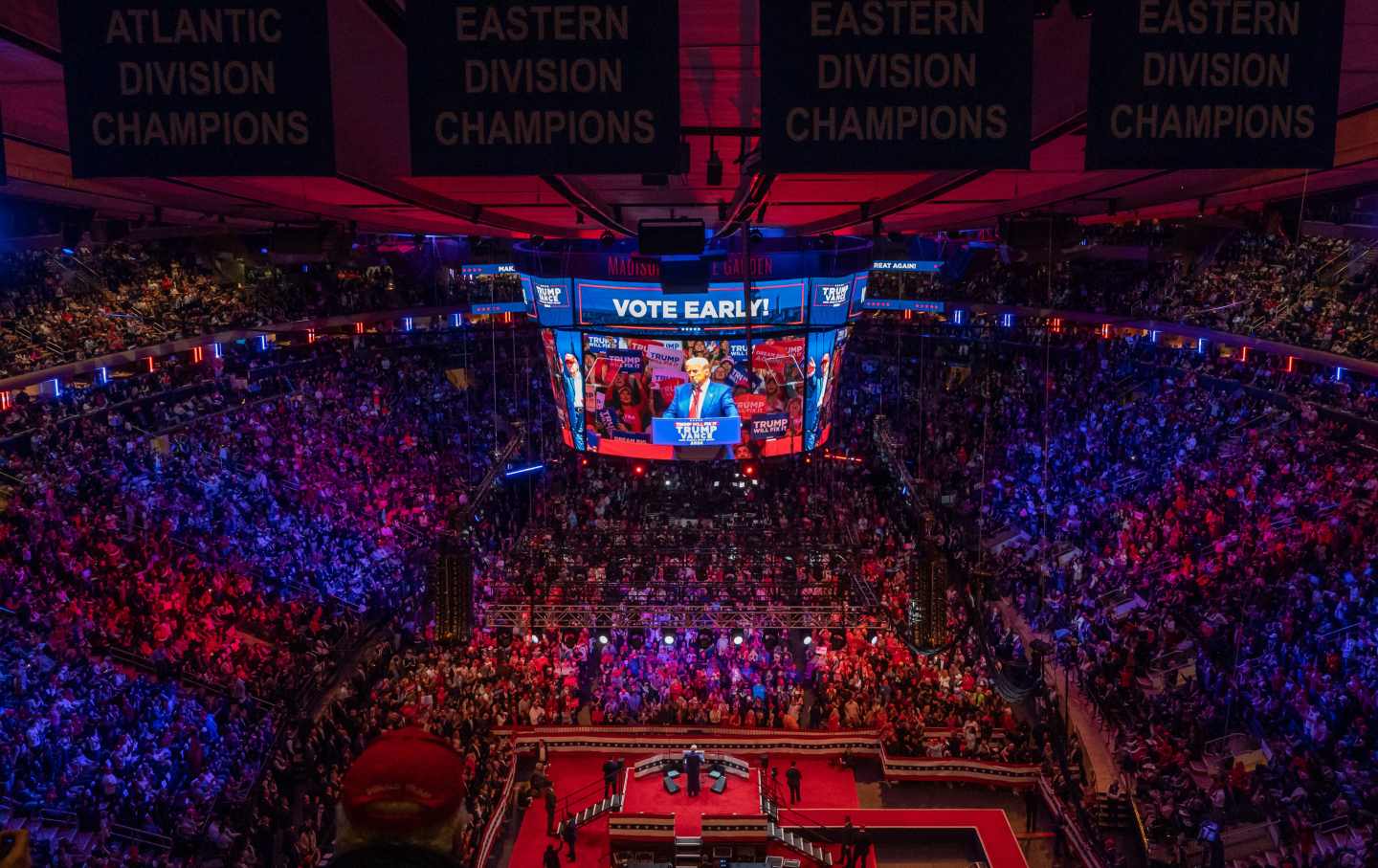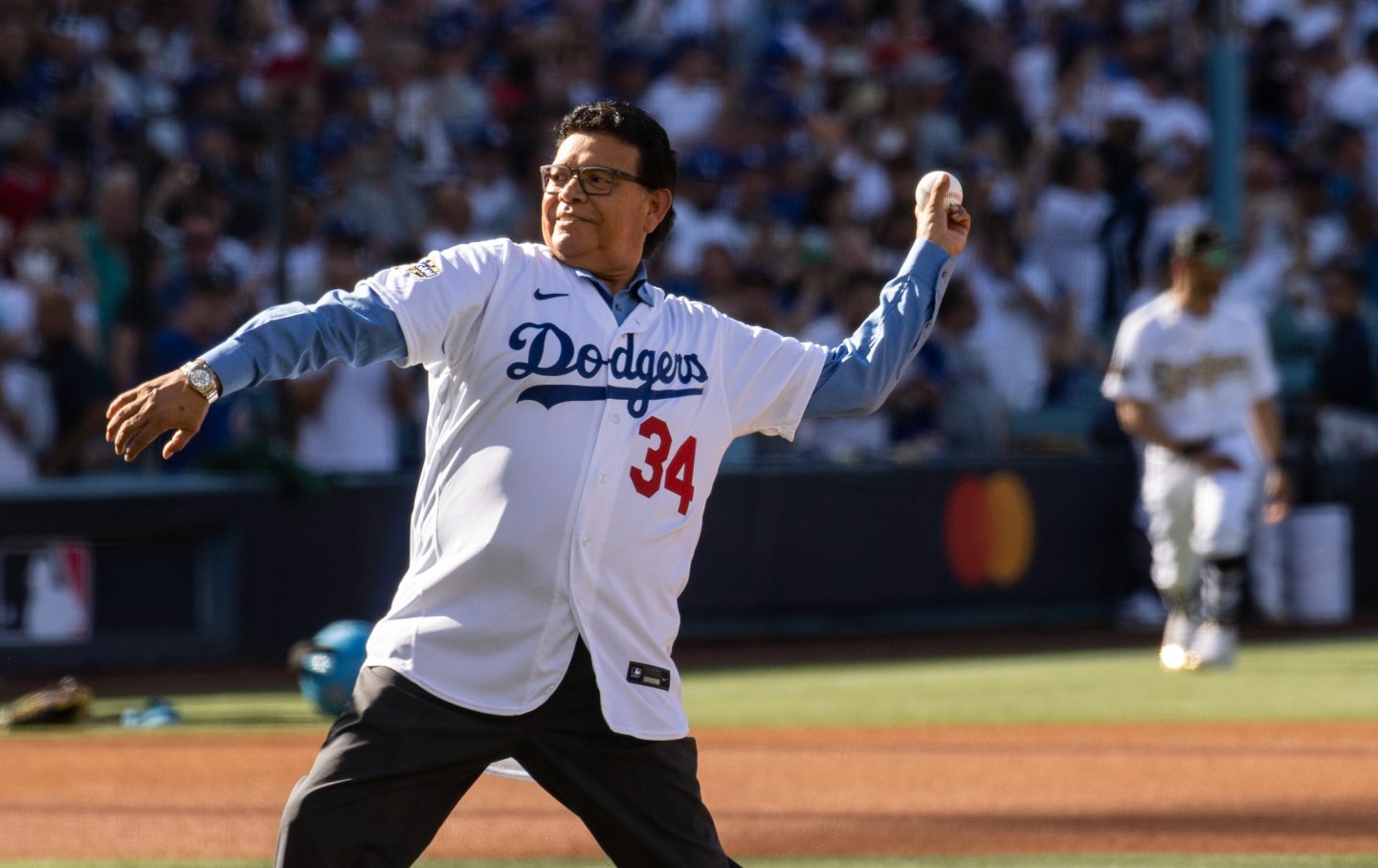To Find Excitement at the NBA All-Star Game, Look to the Stands
Members of the Palestinian Youth Movement and Jewish Voice for Peace unfurled a banner that read “Let Gaza Live.”
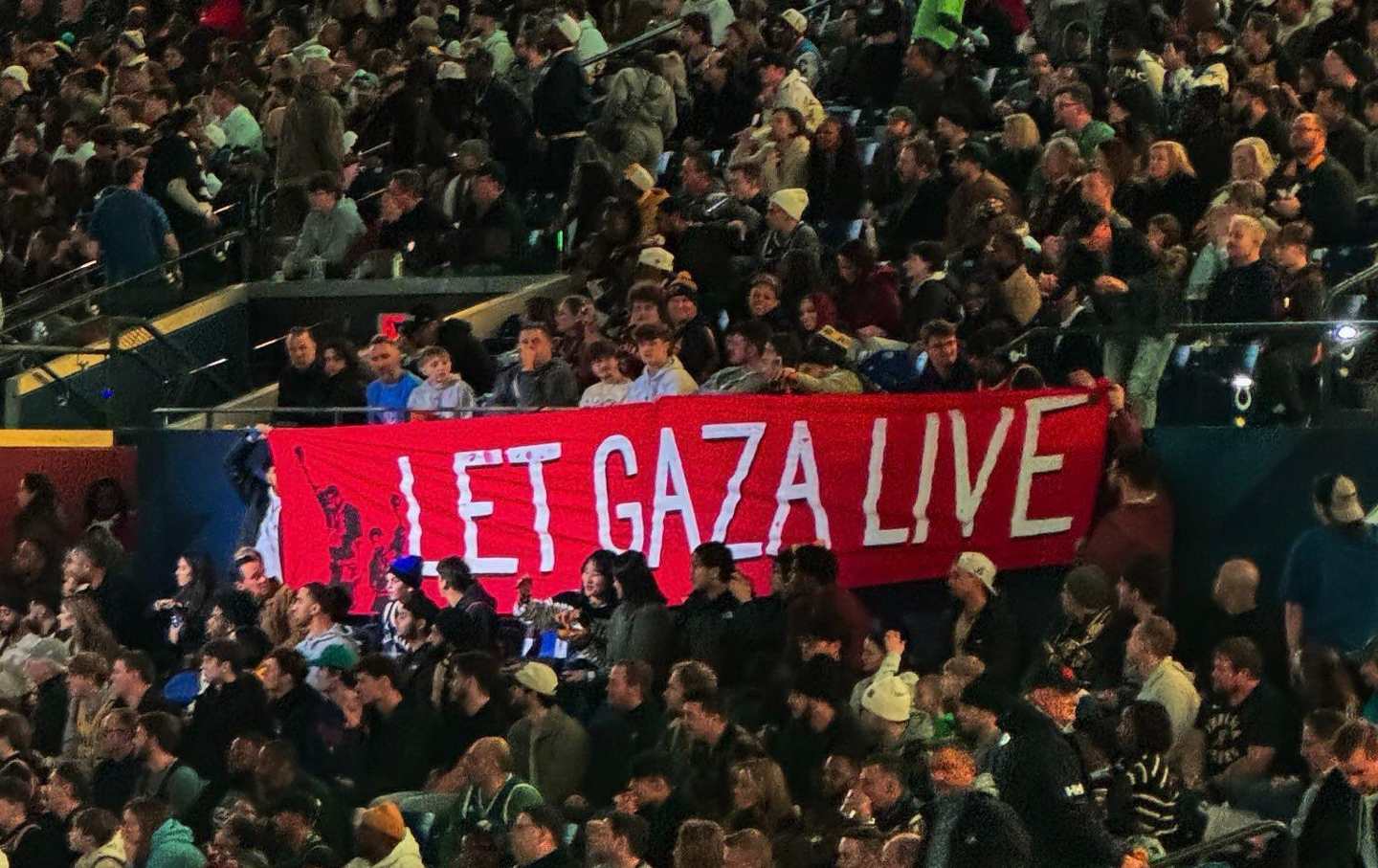
Pundits and fans panned NBA All-Star Game weekend as lifeless. With the exception of a thrilling three-point shooting contest between Steph Curry and Sabrina Ionescu, it was a dull three days. Even the players agreed that everyone’s time could have been better spent. As ESPN’s Brian Windhorst said on his podcast, “Everyone’s unhappy.”
For those seeking the excitement and daring absent on the court, they would have done well to look to the stands. There the Palestinian Youth Movement and Jewish Voice for Peace unfurled mammoth banners, easily the size of two Joel Embiids. One of them read “Let Gaza Live” and had a silhouette of 1968 Olympians John Carlos and Tommie Smith raising their fists to the heavens. Invoking Carlos and Smith made sense: They are enduring symbols of athletic resistance and as reminder that their protest was not just against injustice in the United States; it was also a cry against an apartheid government, South Africa. Isolated at the time, Carlos’s and Smith’s stance has been proven correct.
History is repeating itself, but we cannot wait for the Smiths and Carloses of 2024 to step up and call for immediate cessation to Israel’s war on the civilians of Gaza. A peace movement needs to be built off the field and, in this case, in the stands. Anyone who has ever protested from the bleachers of a sporting event knows that it takes courage. Security is everywhere, and the combination of fans and free-flowing beer can create a volatile situation. Protesters are also acting against propriety and how we are supposed to act at a game. It can be uncomfortable.
As Mohammad AbuHummos of the Palestinian Youth Movement told me, “While athletes and attendees allow themselves to be comfortable in the current status quo and allow their privilege to blind them from witnessing the truth of Israel’s war crimes, we will not. We will not allow ourselves to be complicit as a genocide continues to happen before our very eyes.”
It also takes courage to do this at an NBA event. These are not neutral grounds. As Sean Jacobs and Christina Wong recently wrote for Jacobin, the NBA and the WNBA have strong economic and organizational ties to Israel—and Israeli sportswashing. Israeli teams, to great fanfare, tour across the United States while brutality reigns in the occupied territories. While the league puts on a progressive veneer and says it supports players who make political statements, the only political statements allowable on Gaza are ones that support Israel’s right to continue to bombard civilians in the name of “self-defense.” NBA Commissioner Adam Silver has defended speaking out on racism and Black Lives Matter, but it’s unclear if players would be safe, for instance, pointing out that many police departments receive training in Israel on how to suppress restive populations and create internal colonies.
This atmosphere has meant that while players like Layshia Clarendon and former players Etan Thomas and Tariq Abdul-Wahad have signed onto a letter under the heading Athletes for Ceasefire, most of the NBA world remains silent. As Malkah Bird of JVP-Indianapolis told me, “Muhammad Ali, John Carlos, Tommie Smith, and so many others have taught us that athletes can and do shake up the world. So we joined Athletes for Ceasefire to call for an end to bloodshed at one of America’s biggest sporting events—and thousands of people agreed. Gaza is the moral center of the universe, and we cannot and will not avert our gaze. We’re not stopping until our government joins the rest of the world in demanding a cease-fire and stops sending weapons to the Israeli military.”
There are many basketball players in the United States, some with high profiles, with whom I have spoken who tell me they want to raise a fist in solidarity with the brave banner holders in the stands. The fear, however, is real: fear of public jeering, fear of management, fear of being called antisemitic. In this regard, they are not different from many of our friends and neighbors horrified by what they see but too petrified to speak out. The only way to break people out of isolation and fear is public visibility.
The TNT announcers during NBA All-Star weekend seemed like they were having trouble staying awake. If they had chosen to just acknowledge the bravery in the stands, maybe they would actually have had something interesting to say. In the meantime, activists cannot wait for the mainstream sports media to develop a spine or for players to overcome their trepidation. Visibility like we saw on Saturday night means letting dissenters they are not alone; that they would have significant support if they raised their voices at this critical moment, and—as JVP always reminds us—that there is nothing antisemitic about trying to let Gaza live.

